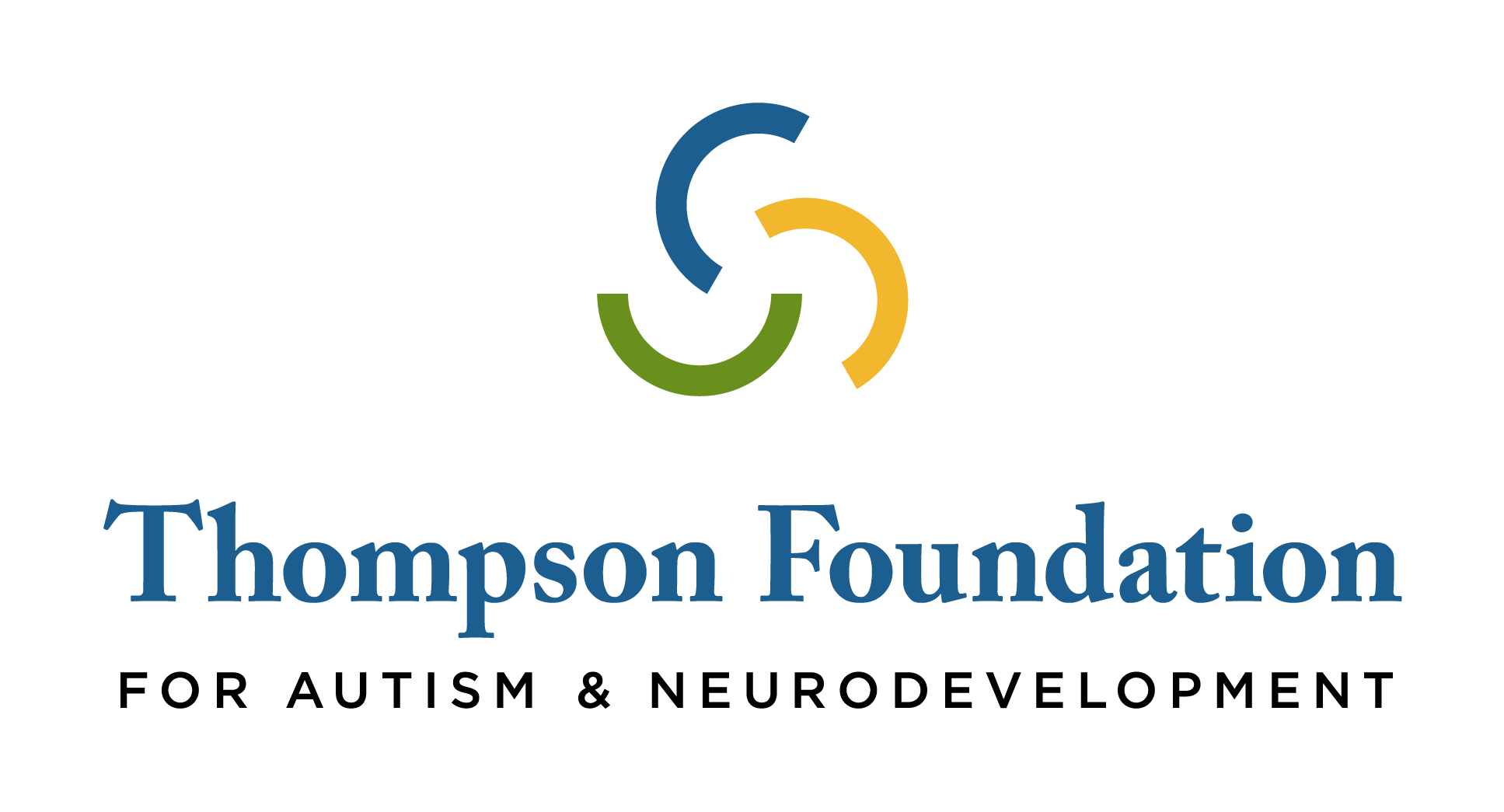For youth with autism, adolescence can be challenging. The Thompson Center’s Social Language Groups teach skills and instill confidence in fun and meaningful ways!
If you’d like to support these groups, please make a donation.
Transcript of video:
Ashleigh Boyd:
Oh, Bryden, I know you know this one. Bed, chair, table, couch.
Bryden:
Furniture.
Ashleigh Boyd:
Yes! Nice job. Did your dad hear you?
Michelle Dampf:
Children with autism, they have a lot of different language needs and it’s very individualized to each child. Typically a child with autism, they’re going to have some issues with that social communication piece or that pragmatic language.
Jenny Moreno:
In our clinic at school, we work with the speech aspect, so that’s how it sounds. We work with language, so reading, and this group is unique because it’s about the social language.
Michelle Dampf:
The children that are in the social language group learn those social skills. We work on body language, gestures, problem-solving.
Jenny Moreno:
Alright, girls. How are you guys?
Matt Bear:
Theresa’s fun and she’s got the personality to have that corner office job someday. What’s your favorite thing about social group?
Theresa Bear:
Probably when I get to hang out with friends and do new crafts and it’s helping me with making friends at school.
Matt Bear:
Okay. What is your favorite thing about the leaders of the social group?
Theresa Bear:
I think that Ms. Michelle is very good at this, and I also think she’s brave for also having a boy group because, wow.
Jenny Moreno:
So today is one of our final sessions and we’re going to do a review of everything we’ve learned, so a lot of it is communication and conversation skills. We’re just going to see how much they remember.
There’s all these different columns, so they’re all the things we’ve talked about this semester. We have a body language column, conversation skills.
I think one of the most satisfying things is the progress that we’ve seen. Throughout the semester we do reviews and the more we review, the more they can put into practice or they can recall. So I think that’s really cool to see the skills that they’re gaining. Look at your partner and say your compliment again.
Laurie Johnson:
Before Parker attended these groups, he didn’t necessarily recognize people’s emotions. It’s made our family communicate better as a whole. The most impactful change is just his ability to express himself in every aspect of his life, and he has a lot of fun. He really looks forward to coming here, and I know that he’ll be sad to see this end, but he’s learned a lot from it.
Michelle Dampf:
Alright, guys, we’re going to go ahead and head to our lanes. It’s really exciting just to see all the boys and the girls using their skills that they’ve learned throughout these past 12 weeks. They were cheering each other on, giving compliments, watching each other, and reading body language and using some empathy and perspective taking, so it was just really cool to watch it all come together to help them generalize those skills.
Claire Ridgeway:
I’m a special education major at Mizzou and a self-advocate for the TIPS for Kids program. I identify as a person with autism. This opportunity is really important for these kids because I personally know it’s really hard learning how to socialize. It’s amazing seeing people like Michelle and some of the students who are here guiding the girls in the right direction. I wish I would’ve had that guidance. I would’ve understood myself better. I would’ve understood that there’s nothing wrong with me; I’m just neurodivergent. They’re learning how to have conversations with each other and how to take turns in conversations. They’re letting each other know and giving each other those conversational signals that I love you, I support you, I want you to do well.


